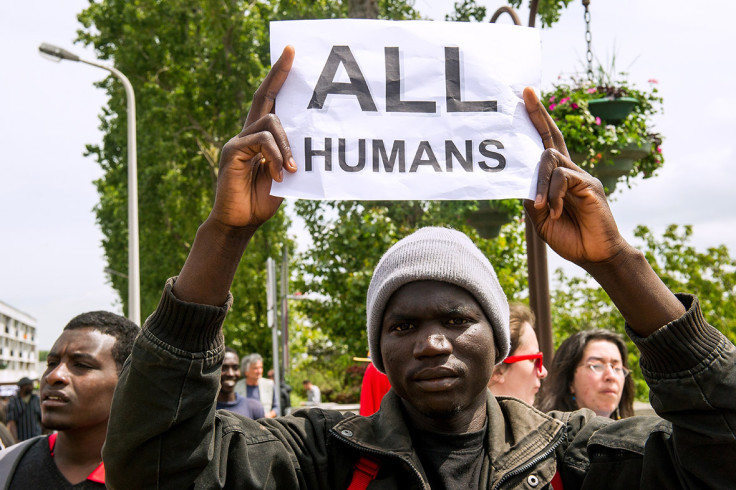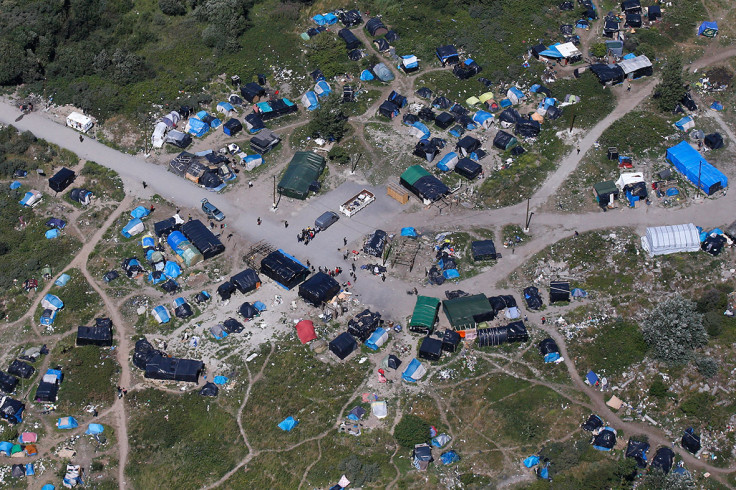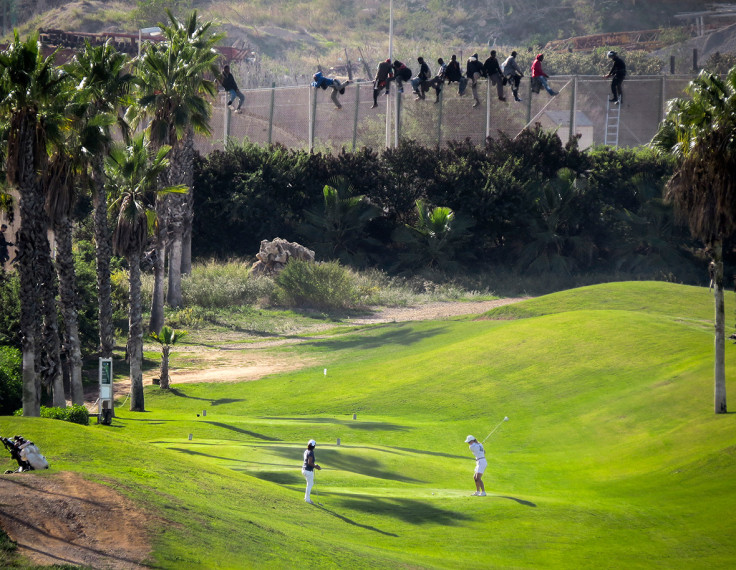Simon Heffer: UK blocking illegal economic migrants is its duty and not humanitarian disregard
According to British Home Secretary Theresa May, the world is gripped by a migrant crisis. Why has this happened? And what can the world do about it?
The main cause is the simple human desire to better oneself. This applies to the hundreds of thousands from Central and South America who try each year to get into the United States from Mexico, as much as it does to migrants from dismal regions in Africa and the Middle East who are making their way through Europe.
But this can, from time to time, sit ill with ideas of nationhood and the formation of national polities designed to serve the interests of those who already inhabit a certain country. Membership of the club may not be open to all comers, not least because the club would fail to be so desirable if it were.

But there are other considerations. Many people still face oppression on the grounds of race, religion or politics, and wish to claim asylum elsewhere. It is the responsibility of civilised and free nations to give such help. Unfortunately, rather too many of them think the responsibility belongs elsewhere. The first thing international diplomacy needs to establish is that all countries purporting to be civilised should take their share of such unfortunate people, and make it clear to the world that they are willing to do so.
The scenes at Calais over the past three or four weeks suggest that in the minds of those wishing to flee oppression, only one country will do, and that is Britain. That view is not sustainable, and is deeply unfair to the British, who have done more than their share to help asylum seekers in recent years.
But the action of many illegal immigrants in reaching Britain and then claiming political asylum, when all they are in fact fleeing is economic difficulty, makes a mockery of the international system. It is quite right, in those circumstances, that Britain should rigorously assert its border controls.
But it doesn't just stop there. A senior French official, embarrassed and angry last week at the criticism being heaped on his government by the British about France's apparent attempt to displace its own immigrant problem through the Channel Tunnel to Great Britain, asked two very pertinent questions: Why does Britain take such a lax view of checking the identity of its citizens, and of finding out those who have no right to be in the country? And why is it so generous with welfare benefits, to the point where those in the "Jungle" shanty town near Calais refer to Britain as an "El Dorado"?

Migrant magnet
Certainly, Britain has acquired an international reputation as a magnet for migrants, whether they have any legal right to settle in it or not. When you compare the enforcement of border controls in America with those in Britain, you see at once why that reputation persists.
Most reasonable people in Britain understand that an element of immigration is essential not just in a free society but in a prosperous and humane one. British subjects like to think they can settle wherever they like in the world if they wish to do so, whether for business reasons or to retire. If we expect those freedoms for ourselves, we must extend them to others.
Similarly, many immigrants to Britain have a work ethic that is not shared by all the indigenous population. They soon find work doing jobs that the natives seem to think either do not exist, or would be beneath them to do. When you are cushioned by a welfare state you may, occasionally, have that luxury, and this attitude has no doubt also sent a bad example abroad.
Also, there are specialists and experts that are always in short supply in Britain, and whom we should be glad to welcome. One hears of doctors, dentists and people with PhDs who have fled the fighting in Syria and are desperate to get into Britain. Britain should be desperate to have them, and their families, for the contribution they would inevitably make to our country.

Economic migrants are not political asylum seekers and war refugees
But the line has to be drawn at the wholesale admission to developed countries of people who are not fleeing persecution in their own lands but are merely hoping to take their chances in a nation with a generous welfare state. In order not to betray the citizens and taxpayers of the potential host countries, their governments have a duty to ensure that. It is in that duty that so many European countries – not just Britain, but France and Italy too –are manifestly failing, as public opinion in those countries is making clear.
If the EU is worth the paper its treaties are written on, it will see that its member nations act in concert to deter illegal economic migration – there is no duty on Europe to admit such people. But Western leaders, notably David Cameron, should also realise the dangers of military interventions in foreign wars.
The interference in Libya of which he was so proud has destabilised a large swath of North Africa and contributed hugely to the current problems with illegal immigration in Europe. As well as trying to shut the stable door after the horse has bolted, the British and other European governments would greatly benefit from not leaving it wide open again.
Dr Simon Heffer is a British commentator and author who has written columns for The Daily Mail, The Daily Telegraph, The Spectator and The New Statesman. He is the biographer of Enoch Powell, Thomas Carlyle and Ralph Vaughan Williams and recently published High Minds: The Victorians And The Birth Of Modern Britain.
© Copyright IBTimes 2025. All rights reserved.




















